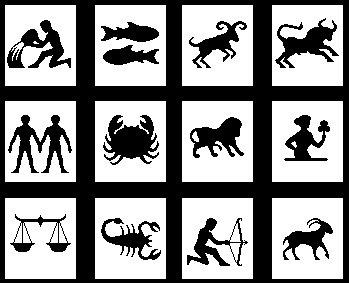 I love this opening paragraph from the New York Times story about the "Intelligent Design" case in Dover, PA:
I love this opening paragraph from the New York Times story about the "Intelligent Design" case in Dover, PA:
A leading architect of the intelligent-design movement defended his ideas in a federal courtroom on Tuesday and acknowledged that under his definition of a scientific theory, astrology would fit as neatly as intelligent design.
Yes, professor. And that’s the problem. Astrology isn’t a science either. Expanding the definition of "scientific theory" to include intelligent design is an admission that intelligent design, as it stands now, isn’t science.
Scientific theory requires that hypotheses be tested, so that they can be discovered as "true" or "false". In other words, any scientific theory must be falsifiable. "Intelligent design", which attributes the origins of life to a mysterious intelligence (i.e., God — wink, wink) is not provable or disprovable. The leading witness, Dr. Michael Bebe, even admits this:
In an attempt to pin Professor Behe down, Mr. Rothschild asked, "What is the mechanism that intelligent design is proposing?"
Mr. Behe said: "It does not propose a mechanism in the sense of a step-by-step description of how these structures arose." He added that "the word ‘mechanism’ can be used broadly" and said the mechanism was "intelligent activity."
Mr. Rothschild concluded, "Sounds pretty tautological, Professor Behe."
Indeed, it is tautological.
And then there’s this gem:
Listening from the front row of the courtroom, a school board members [sic] said he found Professor Behe’s testimony reaffirming. "Doesn’t it sound like he knows what he’s talking about?" said the Rev. Ed Rowand, a board member and church pastor.
Why, Reverand? Because Behe uses big words that you don’t understand that kinda sorta sound quasi-scientific?
The York Daily Record covers the same story, with snarkiness notably missing from the New York Times:
Dr. Michael Behe, leading intellectual light of the intelligent design movement, faced a dilemma.
In order to call intelligent design a "scientific theory," he had to change the definition of the term. It seemed the definition offered by the National Academy of Science, the largest and most prestigious organization of scientists in the Western world, was inadequate to contain the scope and splendor and just plain gee-willigerness of intelligent design.
So he devised his own definition of theory, expanding upon the definition of those stuck-in-the-21st-century scientists, those scientists who ridicule him and call his "theory" creationism in a cheap suit.
He’d show them. He’d come up with his own definition.
Details aside, his definition was broader and more inclusive of ideas that are "outside the box."
So, as we learned Tuesday, during Day 11 of the Dover Panda Trial, under his definition of a scientific theory, astrology would be a scientific theory.
Astrology?
Who knew that Jacqueline Bigar, syndicated astrology columnist, was on par with Lehigh University biochemist Michael Behe?
Eric Rothschild, attorney for the plaintiffs, asked Behe about whether astrology was science. And Behe, after hemming and hawing and launching into an abbreviated history of astrology and science, said, under his definition, it is. He said he wasn’t a science historian, but the definition of astrology in the dictionary referred to its 15th-century roots, when it was equated with astronomy, which, according to the National Academy of Science, is a science.
So, taking a short logical leap, something Behe would certainly endorse since he does it a lot himself, you could say that intelligent design is on par with 15th-century science.
Sounds about right.
